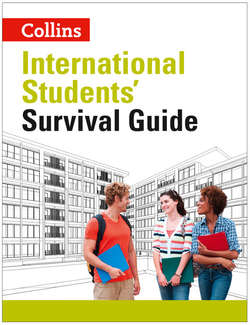Читать книгу International Students’ Survival Guide - Литагент HarperCollins USD, Ю. Д. Земенков, Koostaja: Ajakiri New Scientist - Страница 19
Private rental:
ОглавлениеMany international students rent a house or apartment/flat to live in. This is usually done through a real estate or rental agency. You’ll usually be asked to complete a rental application form. This form will ask you to prove you can pay the rent and provide the contact details of people who will confirm that you’ll take care of their place (called referees). Remember that you’ll be paying for utilities (electricity, water, gas, etc.) if you rent a place. You may also need to pay for the Internet and arrange this through an Internet Service Provider (ISP). If you’re studying in the UK and want to watch television, you may also have to pay for a TV licence. In some countries, like the US, you’ll be required to pay one month’s rent as a deposit as well.
Real estate agencies near your institution list houses and apartments for lease every week. Visit them or their website for details.
Most towns have at least one online search engine for finding places to lease. For the US, try www.collegestudentapartments.com. In Australia, you might like to try www.realestate.com.au or www.domain.com.au.
Your institution may have an accommodation board or website where people with student-type housing advertise. Check with them.
Check newspapers, public noticeboards, and kiosks: some people still advertise places for rent in these places.
If you want to rent, you need to look at what sort of places are available and how much they cost. You also need to decide where you want to live. Close to campus? Close to the center of town? How long are you prepared to spend traveling to get to classes? Do you want to be able to walk to classes? Is there convenient public transportation? If you plan to drive, is parking available and free or cheap?
How much can you afford to spend on rent? Remember that you’ll also need to pay for other things like utilities and the Internet. You may also need to pay to have these connected when you move in.
How close to campus do you want to live? Don’t assume you’ll be able to find and afford somewhere within walking distance of your classes. Think about how much money and time you are happy to spend on travel.
Do you want to live by yourself, or with other people?
Living by yourself gives you privacy, but it’s more expensive and can get lonely.
Sharing with people you know (friends, relatives) can be a good option, though remember that good friends don’t always make good roommates!
It’s also possible to share a place with new people. You can rent a place with more than one room and look for people to stay in the other bedrooms, or apply for a spare room in a place where people are already living.
If you decide to share, remember you’ll need to come to an arrangement with your roommate(s) about how to divide up the housework and the cost of rent and bills.
Be careful: make sure you read all the information on your lease and know how much you have to pay at the start of the process. Many colleges/universities have a housing service or a student legal advice department which can help you with your contracts and can answer your queries. Don’t sign anything before you know exactly what it all means.
